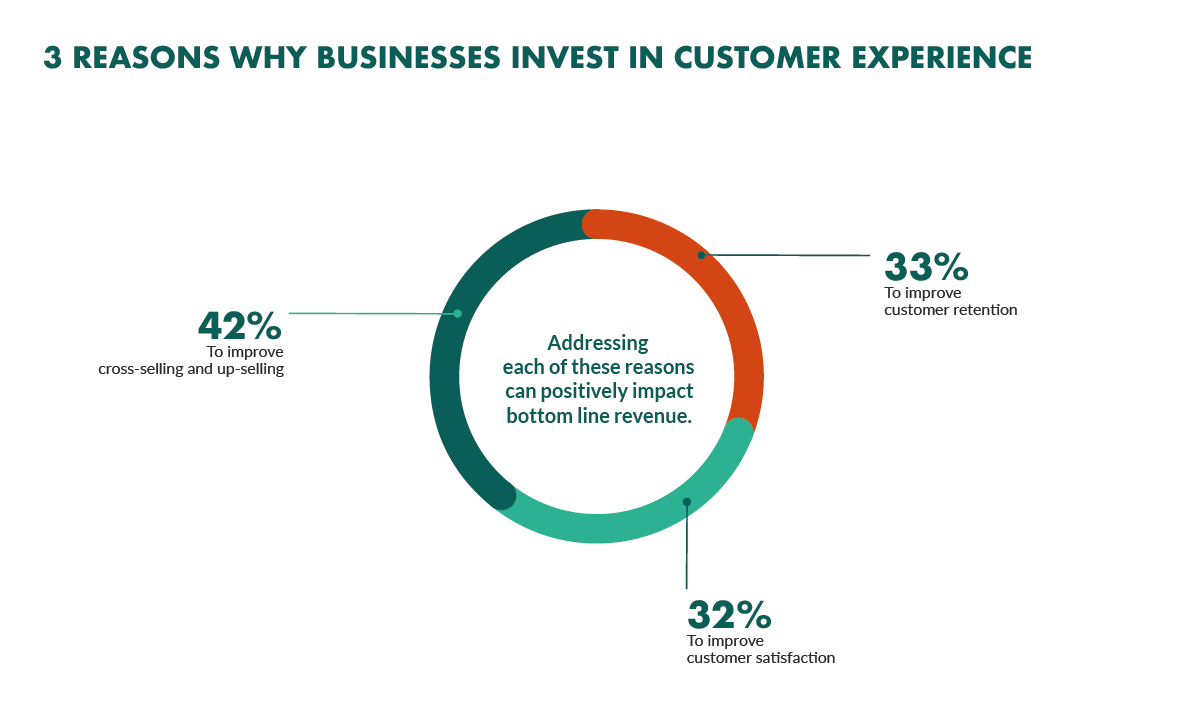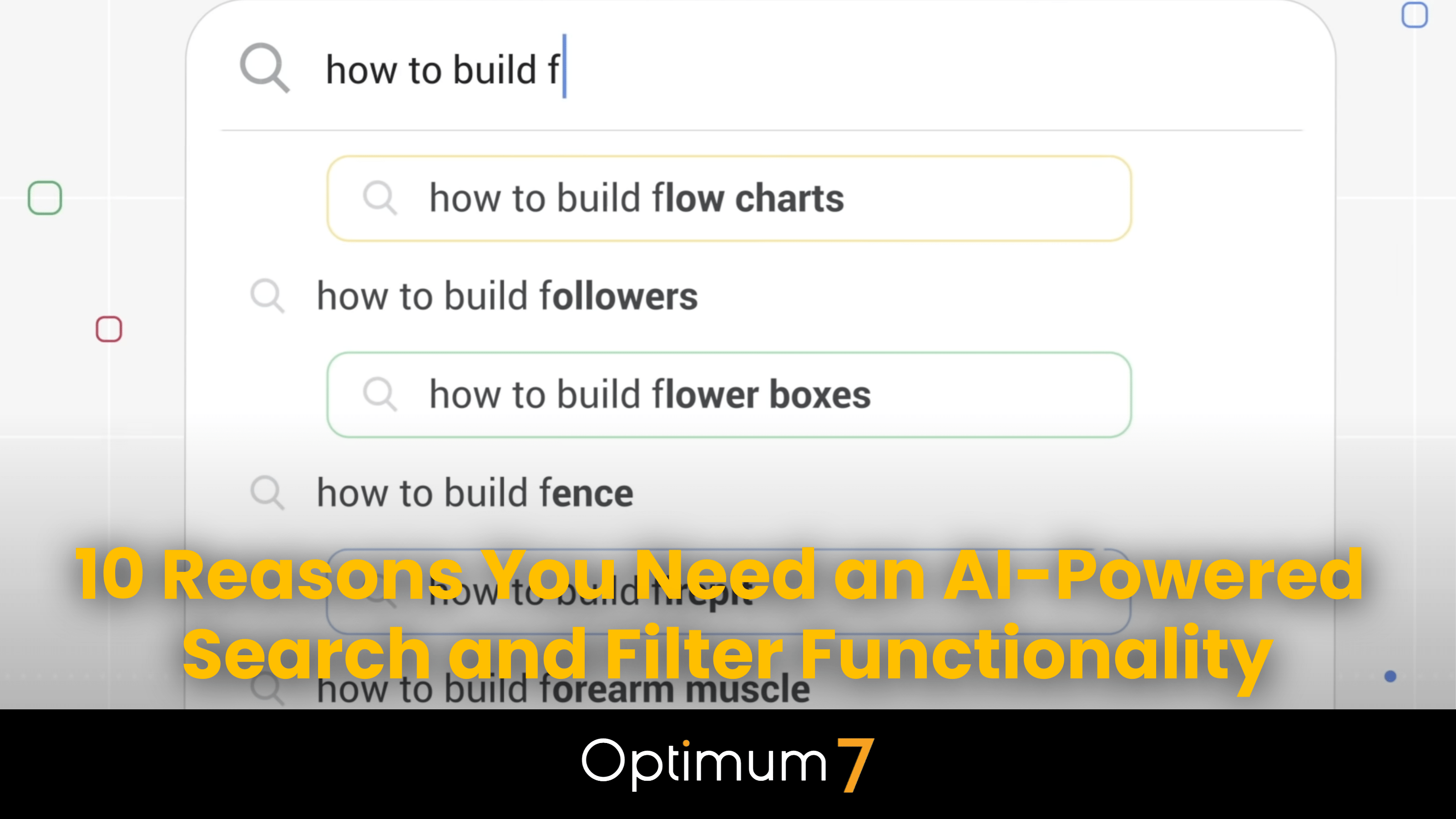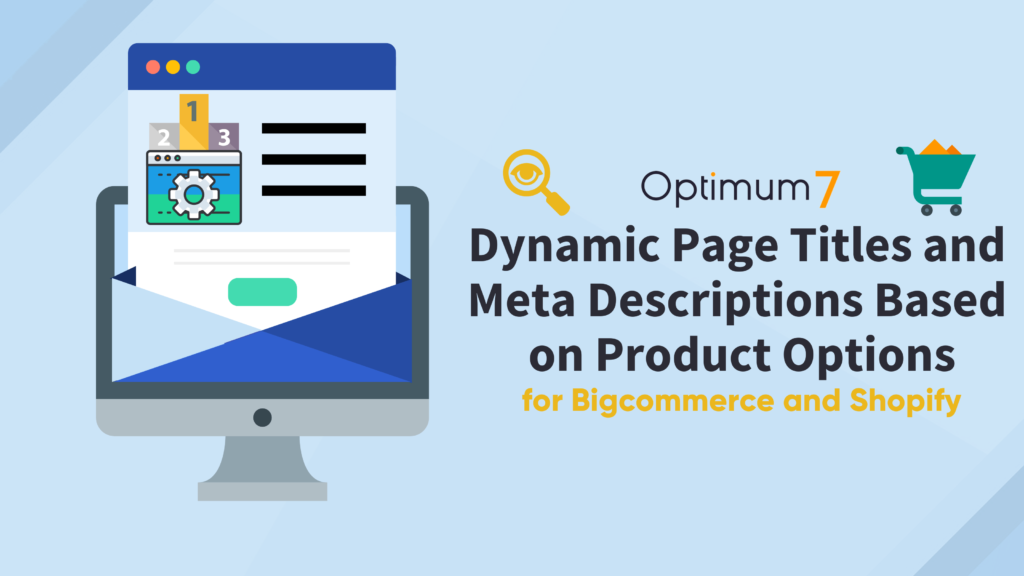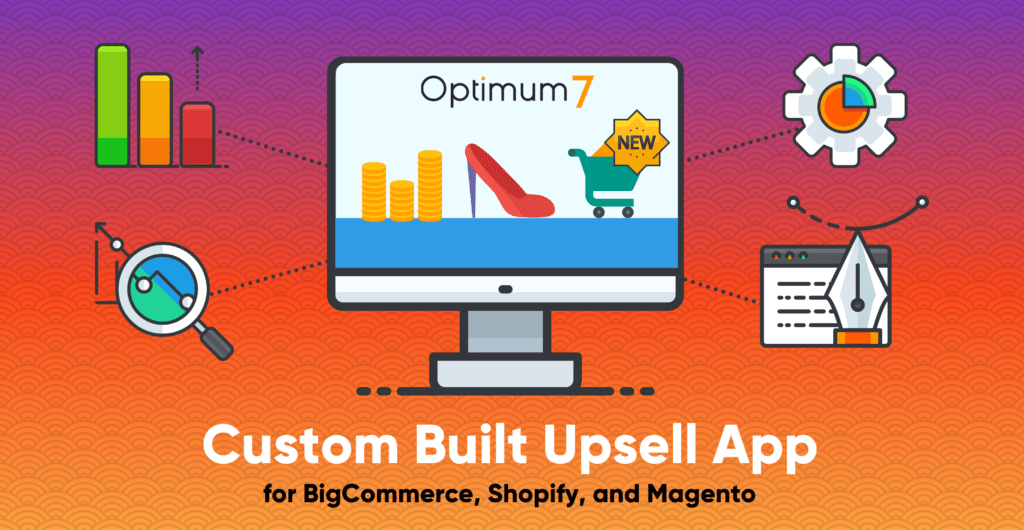The increasing complexity and volume of products available online make it imperative for businesses to facilitate a seamless and rapid product discovery process for their customers. These intelligent search functionalities can differentiate your business from the competition, enhance the customer experience, and increase conversion rates.
Here are ten reasons why you need to integrate AI-powered search and filter functionalities into your eCommerce website:
1. Enhanced Customer Experience through AI-Powered Search and Filter Functionality
From the moment a potential customer navigates to your eCommerce platform, every interaction they have contributes to shaping their overall customer experience. A pivotal aspect of this journey is the ease and efficiency with which they can pinpoint the specific products they’re seeking among the myriad options available.
In an online space where countless businesses are vying for customer attention, having a website that allows a visitor to locate their desired product within three to five seconds sets you significantly apart from the competition. It’s not just about speed, though; it’s about the seamlessness of the journey from landing on the site to finding the exact product. This short window can be the difference between a bounce and a conversion, making it a critical determinant of user satisfaction and overall customer experience.

However, the power of AI goes far beyond speeding up search times. By integrating AI into your search and filter functionality, you empower your website to provide a highly personalized and engaging user experience. This is accomplished through AI’s capacity for ‘learning’ from customers’ past behavior on the site.
Through AI, the system can recall a customer’s previous searches, viewing history, and purchases, using this information to inform and tailor the results it serves. For instance, if a customer has previously purchased a particular brand of jeans, the next time they search for jeans, the AI system might prioritize that brand in the search results. It might also consider their preferences in terms of color, size, price range, and other relevant parameters, providing them with a search result that feels uniquely customized to their preferences.
Furthermore, this AI-driven personalization can extend into related product recommendations, presenting customers with items that complement their past or current purchases. This cross-selling strategy not only enhances the customer’s shopping experience by introducing them to new products they might enjoy but also presents an opportunity for increased sales.
AI’s capability to remember and learn from individual customer behavior ensures an optimized, personalized experience that feels intuitive and user-friendly. It transforms a potentially overwhelming product discovery process into an engaging journey that caters to each customer’s specific needs and preferences.
Incorporating AI-powered search and filter functionality, therefore, not only creates an enhanced, streamlined shopping experience but also fosters a sense of individual attention and understanding, a key factor in building customer loyalty and long-term relationships. This superior customer experience is a decisive competitive advantage in the crowded eCommerce landscape.
2. Amplifying Conversion Rates with AI-Powered Search
In an eCommerce environment, where competition is just a click away, the ability to facilitate a smooth and efficient customer journey directly influences conversion rates. Leveraging AI-powered search and filter functionality, businesses can significantly improve their conversion potential by offering a rapid and intuitive product discovery experience.
Speed of discovery is a key determinant of the visitor’s likelihood to convert. When a visitor can swiftly locate the product they’re interested in, the barrier between browsing and purchasing is substantially reduced. It minimizes the ‘effort’ involved in the shopping process, resulting in a streamlined journey from landing on the site to clicking the ‘buy now’ button. In essence, the quicker and more efficiently customers can find their desired items, the higher the likelihood they will proceed to purchase.
The impact of an AI-powered search goes beyond the initial product discovery, though. By enabling customers to find what they’re looking for faster, it frees up more time for them to explore other areas of your site. This additional browsing time is an opportunity for them to discover more products, thereby increasing the chances of adding more items to their cart. This expanded exploration phase not only increases potential sales but also deepens the customer’s engagement with your brand and product range.
Moreover, the frustration often associated with navigating a vast and complex product catalog can significantly hinder the conversion process. A convoluted search process may lead to customers abandoning their shopping endeavor due to the sheer effort required to find the right product. By contrast, an AI-driven search and filter system simplifies this process, delivering highly relevant results quickly and accurately. This elevated user experience diminishes shopping-related stress, increasing the probability of a purchase and boosting overall customer satisfaction.
3. Achieving Personalization in eCommerce Site Search through AI
In the realm of eCommerce, personalization has transformed from a delightful surprise to an expected standard, largely driven by the AI capabilities of industry leaders like Amazon and Walmart. A key element that enhances personalization on eCommerce platforms is the AI-powered site search functionality. This advanced feature doesn’t just recall previous searches; it intelligently interprets and learns from a user’s search history and purchasing behavior to deliver personalized results that align with their unique needs and preferences.
At the core of an AI-powered eCommerce site search is the ability to analyze a user’s previous searches and purchases. By understanding the customer’s past interactions with the website, the AI system can identify patterns and trends that indicate the customer’s preferences. This could include their preferred brands, favored product categories, price range, color choices, and more. The system can then use this information to customize future search results, making them more relevant and personalized for each individual user.
For instance, if a customer frequently searches for and buys organic products, an AI-powered eCommerce site search can prioritize organic products in their future search results. Likewise, if the system recognizes that a user consistently purchases a particular brand or style, it can suggest similar products they might not yet have discovered. This level of personalization transforms the generic search experience into a curated journey that feels uniquely tailored to each customer’s interests and preferences.

Beyond personalizing search results, AI-powered search functionality can also adapt its recommendations based on a customer’s shopping history. If the system recognizes that a user often buys items in certain combinations – for example, a laptop with a specific type of accessory – it can suggest these items together in the future. This intelligent cross-selling not only adds another layer of personalization to the customer’s shopping experience but also increases the potential for additional sales.
The value of personalization in eCommerce cannot be overstated. By integrating AI into your site search functionality, you can offer a deeply personalized and engaging shopping experience that not only improves customer satisfaction but also enhances your website’s competitiveness in the market. Moreover, by understanding and adapting to each customer’s unique preferences, an AI-powered eCommerce site search can help drive repeat purchases and foster customer loyalty, providing a long-term boost to your business’s growth and success.
4. Predictive Analysis
Picture this: You’re typing into the search bar on an eCommerce website, and before you’ve even finished inputting your search, the site already displays products that perfectly match what you’re looking for. It’s almost like magic, isn’t it? This is the power of predictive analysis in AI-powered eCommerce site search – a tool that not only brings speed and accuracy to your customers’ search experiences but also holds the potential to significantly enhance your sales and customer satisfaction.
Predictive analysis is one of the most potent features of AI. It operates on the concept of understanding user behavior and forecasting future actions based on past interactions. In an eCommerce context, this means the AI-powered site search anticipates what customers are likely to search for, even before they finish typing their query. It’s a level of intuitiveness comparable to Google’s search functionality, creating faster, more accurate search results that match customer intent.

The magic of predictive analysis lies in its ability to instantly process vast quantities of data to predict user intent accurately. It studies a customer’s search history, navigational patterns, and purchase behavior, using this wealth of information to predict what they might be interested in next. The result is a frictionless shopping experience where customers effortlessly find what they’re looking for, significantly improving their satisfaction and enhancing their likelihood to convert.
But the power of predictive analysis in eCommerce site search goes beyond merely speeding up search results. It also serves as a powerful upselling and cross-selling tool. Once the AI understands a customer’s preferences, it can recommend related products or premium options that the customer might find appealing. This feature turns every search into a personalized shopping experience, enhancing the value of each transaction and boosting your bottom line.
For instance, if a customer is searching for running shoes, the AI might predict they could also be interested in running socks or high-performance sportswear. These related product suggestions not only provide a more comprehensive shopping experience but also increase the average order value, contributing to higher revenues.
5. Leveraging Semantic Understanding in eCommerce Site Search
Semantic understanding is a game-changer in the world of eCommerce site search. A typical user may not always know the precise terminology or nomenclature for the product they’re looking for. They might use synonyms, acronyms, or even industry jargon to describe their desired item. Here, AI’s strength lies in deciphering these different terms, identifying the underlying intent, and returning the most relevant search results.
When you harness the power of AI, you’re equipping your eCommerce site with a search functionality that can navigate complex linguistic landscapes. It goes beyond merely matching keywords; it’s about understanding the semantics, the context, and the intent behind a customer’s search. This semantic understanding ensures that customers find exactly what they’re looking for, regardless of how they phrase their search, providing a smooth, frustration-free shopping experience.
Implementing AI-powered semantic understanding in your eCommerce site search allows your online platform to be more intuitive and user-friendly. It improves the overall user experience, increases customer satisfaction, and ultimately, boosts your conversion rates.
6. Efficiently Handling Large Inventories with AI-Powered eCommerce Site Search
If you’re a business that boasts an extensive product catalog, an AI-powered search functionality is your new best friend. The challenge with a large inventory is ensuring that customers can easily and quickly find what they’re looking for. With AI, you can effectively index millions of products, delivering accurate search results within milliseconds.
Imagine your eCommerce site is a massive warehouse with millions of products. Navigating through such a vast inventory can be a daunting task for your customers. But an AI-powered search function acts like an efficient warehouse manager, who knows exactly where every product is, ensuring that customers can quickly and efficiently locate what they’re looking for.
Furthermore, this powerful tool adapts to your ever-growing product range. As you expand your inventory, the AI seamlessly scales up, indexing new products without compromising the speed or accuracy of search results. Embracing AI in handling large inventories significantly enhances user experience, making your eCommerce site a preferred shopping destination.
7. Real-Time Inventory Updates: A Crucial Feature of the AI-Powered Site Search
Imagine a customer spending time searching for a product, deciding to buy it, and then discovering it’s out of stock. It’s not just a lost sale for your business but a frustrated customer who might think twice before returning.
Real-time inventory updates are a crucial feature of AI-powered eCommerce site search. With AI’s ability to track stock levels in real-time, only available items are displayed in search results. This feature not only prevents customer disappointment but also aids in retaining customer trust and loyalty.
AI understands that every search represents a potential sale. By prioritizing in-stock items in search results, it turns this potential into a reality, preventing sales losses that result from displaying out-of-stock items. Additionally, when an item is restocked, the AI ensures it’s immediately reflected in the search results, capturing any lingering customer interest in the product.
Implementing real-time inventory updates in your eCommerce site search helps maintain a positive shopping experience, maximizes customer satisfaction, and ultimately, boosts your conversion rates.
8. Enhanced Navigation with AI-Powered eCommerce Site Search
In a brick-and-mortar store, customers can physically browse and touch different products. But how do you replicate this tactile shopping experience online? The answer lies in AI-powered eCommerce site search.
An advanced AI search engine provides intuitive navigation and filter options, transforming the way customers interact with your online store. Shoppers can filter results based on a multitude of attributes such as color, shape, size, material, and more. This versatility, in turn, mirrors the physical browsing experience in an online environment.
The enhanced navigation provided by AI doesn’t merely streamline the search process; it elevates the entire shopping experience. When customers can swiftly locate what they’re looking for, they’re more likely to convert from casual browsers to actual buyers. By refining the navigation process, your eCommerce site will give customers a more personalized and satisfying journey, setting you apart from competitors.
9. Leveraging Analytics and Insights with AI-Powered eCommerce Site Search
AI is an invaluable tool for businesses, not just customers. Every search query is a learning opportunity for an AI system, compiling valuable data that can offer critical insights into customer behavior.
As customers interact with your eCommerce site search, AI learns from their behavior patterns, identifying popular products, trending searches, and even the path to purchase. It’s like having a round-the-clock market researcher providing actionable insights. These analytics can be used to refine your product offerings, optimize pricing strategies, and personalize marketing campaigns.
The ability to gain deeper insights into customer behavior can facilitate more informed decision-making, strategic planning, and ultimately, lead to improved business performance. By leveraging AI’s analytic capabilities, you’re investing in the continuous growth and success of your eCommerce business.
10. Outshining the Competition with AI-Powered eCommerce Site Search
In the competitive world of eCommerce, offering a unique and enjoyable shopping experience is paramount. Incorporating AI capabilities into your search and filter functionalities is a surefire way to distinguish your business from the competition.
If your current search functionalities are generic or lack AI capabilities, you risk losing market share to competitors who’ve invested in advanced AI-powered eCommerce site search. Consumers today expect personalized and efficient shopping experiences. By leveraging AI, you’ll meet these expectations and provide an intuitive, streamlined shopping experience that your competitors may not.
By adopting an AI-powered search and filter functionality, you’re investing in a customer-centric approach, improving the user experience and future-proofing your eCommerce business. You’re not just integrating a feature; you’re elevating your business to be more competitive and customer-focused, leading to sustained success in the ever-evolving eCommerce landscape.
Conclusion: Transform Your eCommerce Site with AI-Powered Search
As we draw this discourse to a close, it’s clear that AI-powered search and filter functionalities serve a pivotal role far beyond being a mere technical enhancement. They act as a strategic asset that has the power to revolutionize your eCommerce business, enhance customer experiences, and elevate your brand in a competitive marketplace.
Think about this – an AI-enhanced eCommerce site search that remembers and learns from customers’ search history. It’s like having a dedicated personal shopper for every visitor, one who understands their preferences and is ready to help at any moment. With predictive analysis, it’s possible to suggest products even before customers finish typing their queries, making their shopping journey faster and more efficient.
AI’s ability to comprehend semantic inputs ensures that customers are catered to, regardless of their choice of words or phrases. This level of understanding allows your eCommerce site to present the most relevant results, fostering a seamless user experience.
Imagine having an expansive inventory, but being able to navigate it effortlessly. AI-powered search capabilities handle large product catalogs with ease, delivering fast and accurate results. And with real-time inventory updates, customers can shop with confidence, knowing their chosen products are readily available.
With AI-enhanced navigation, shoppers can filter their searches based on an array of attributes, creating a personalized and intuitive shopping journey. This not only improves the shopping experience but also boosts the chance of converting browsers into buyers.
Moreover, the trove of analytics and insights gathered from AI provides a wealth of knowledge about customer behaviors, enabling businesses to optimize their strategies, product offerings, and marketing campaigns.
In essence, integrating AI into your eCommerce site search is not a choice, but a necessity for businesses aspiring to stand out in today’s digital commerce landscape. By adopting these AI-powered functionalities, your eCommerce platform transforms into a dynamic, customer-centric marketplace. It’s not just about making your platform more efficient; it’s about redefining your business, enhancing customer engagement, and setting the stage for sustained success. The future of eCommerce lies in AI, and the time to embrace it is now.




